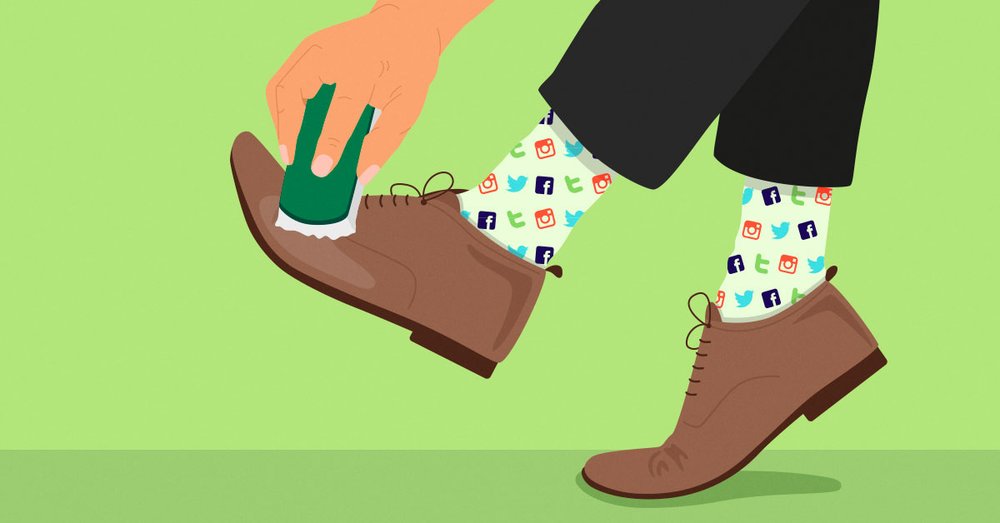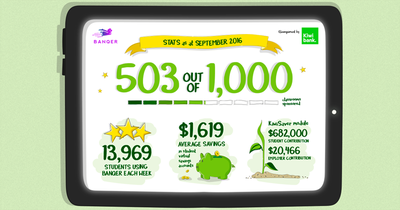Tell us about your role:
PH: I look after all digital (online) advertising across the different channels the Marketing Team use at Kiwibank and analyse the performance we get off the back of them. It’s an exciting role to work in as we’re continually able to reiterate and test new ways of doing things as the digital marketing landscape evolves so rapidly.
Give us a bit of background around where your interest in social media started:
PH: I remember setting up a Facebook account in 2007 which was before the big Facebook tsunami hit New Zealand and not thinking too much of it at the time. I didn’t use it for 12 months as ‘Bebo’ was where I was connecting with friends. Bebo was like a deer caught in the headlights and didn’t see Facebook speeding right at it. By the end of 2008 almost everyone I knew had migrated from Bebo over to Facebook. It shows how quickly things can change in this space. That’s when I took a real interest in social media.
Throughout University I studied subjects which looked at the rapid development and increase of technologies around the globe and how this was having an impact on society and different cultures. At the time these subjects touched on social media and the importance of how it changes the way we interact and connect with each other, but even in a few short years since then I think this space has moved forward quicker and in different ways to how some may have anticipated. Outside of University I helped set up and managed some different community based group social media channels.
How do you think social media has changed the way we communicate with customers?
PH: Whether companies like it or not, there is an expectation now that you need to have some form of presence on social media, this certainly shouldn’t be looked at as a bad thing from a business perspective. It’s a great way to connect with existing customers and reach out to new ones. But it’s important that your channels are managed appropriately.
From a brand point of view, social channels are a great way to get your name and product out there. However, more often than not, customer bases span across a range of people with differing interests, tastes and opinions. This needs to be taken into account when trying to reach and cut through to the relevant audience. As your social communities grow, your online community will call you out if you get something wrong (they might not jump at the opportunity to tell you when you have done something right). You may not always agree what someone is telling you but conversation and feedback is healthy and beneficial. Just make sure you have a plan to manage it.
How can businesses use social media channels to connect with customers and acquire new ones?
PH: I’m always surprised when I see a company that could really benefit from using social media but aren’t. Starting and running a business can be difficult but social media is a great way to connect with your current customers and get your name out there to new ones. If you’re starting out, focus on social posts that appeal to your existing customer base which should in turn find similar people who you and your business may be able to connect with.
Where should businesses start?
It’s easy to get carried away and set up as many social media channels as you can, and hey I get it, it’s an exciting area to play in. It’s best to look at what you want to achieve from these channels and go with the ones which are going to be most relevant to your business, perhaps start off with only one or two channels. Work out a clear plan of what you hope to achieve and put some basics metrics in place on how you’re going measure success/outcomes from a post.
What are some of your favourite channels?
Facebook is by far the biggest social media channel. In NZ alone we have between 2.5 – 3million active monthly users. You can see why this is quickly becoming the channel of choice for advertisers. While you may use other channels, I like to look at Facebook as your main point of reference for your social activity. It’s easy to post updates, photos, videos and links plus more importantly, engage with your community. Setting up a Facebook business page is essential. From here you’ll have access to Facebook’s rich data which you can use to connect with your desired audience. Remember that it’s important to post regularly with a variety of different posts, don’t only focus on product but also other interesting content your community may find useful.
While Twitter doesn’t have the user base that Facebook does, what it does have is a lot of people who have a lot to say. If you use Twitter already yourself, you’ll know that it isn’t so much about talking with friends and family but for communicating with other people who may be participating in a conversation about a certain topic. Yes Twitter is limited to 140 characters for each tweet, but when used correctly it can be very effective and you learn to simply just get your message across to your community. It’s also a great platform for customer service - if you have an unhappy customer tweet at you, you have 140 characters to turn that experience with your business into a positive one.
Instagram is a great way to share photos and showcase your business. I wasn’t an early adopter of this platform but now I can’t stay off it. If you didn’t already know, Facebook bought Instagram in 2012. Why is that important? Well, when Facebook acquired Instagram, this provided users with the ability to plug into Facebook and use the same data for advertising targeting, similar to that on Facebook, on the Instagram platform. A few tips about Instagram: the main age group is between 18-35. Using hashtags is important on this channel and by using the correct ones that relate to your business this can enable you to get in front of users who may have an interest in what you do. Instagram is predominately built to be used on a smartphone.
Other channels that are worth looking into are YouTube, LinkedIn and Pinterest.
If you had to give a business owner one piece of advice about using social media what would it be?
If you haven’t already, create some social accounts for your business on the channels you believe your type of business best fits on. A good starting point is creating a Facebook page. When you’re starting out, don’t be scared of posting different types of content to see what your community best responds to. The insights you gain can be used to grow your online community and bring in potential new business. Try using original content and where possible stay away from stock photography.



